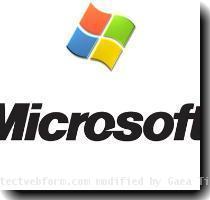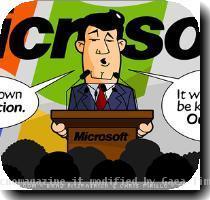Microsoft to offer up to 12 browsers under deal that ends all current EU antitrust charges
By Aoife White, APWednesday, December 16, 2009
Microsoft to let Europeans pick browser in EU deal
BRUSSELS — More than 100 million Europeans will get to pick a Web browser after Microsoft agreed to offer Internet users a choice to avoid fresh fines — a move that could represent a real thawing of long-standing tensions between the software company and the European Union.
The deal announced Wednesday ends all current antitrust charges brought by European Union regulators. Beginning in March, Microsoft Corp. will provide a pop-up screen to all European users of its Windows operating system, asking them to choose one or more of five major browsers — including Microsoft’s Internet Explorer, Mozilla’s Firefox, Google Inc.’s Chrome and Apple Inc.’s Safari — and seven smaller rivals.
In return, the European Commission will drop charges it filed against Microsoft in January, when it said tying Internet Explorer to Windows — already installed on most computers — gave the browser an unfair advantage. That was the latest in a long list of concerns — in more than a decade of EU antitrust action, Microsoft has been fined €1.7 billion.
Neelie Kroes, the EU’s competition commissioner, said the deal resolves “a serious competition concern” for a key market in the development of the Internet.
“It is as if you went to the supermarket and they only offered you one brand of shampoo on the shelf, and all the other choices are hidden out the back, and not everyone knows about them,” she said. “What we are saying today is that all the brands should be on the shelf.”
The deal came on the same day that U.S. regulators sued market-leading chip maker Intel Corp., looking to block pricing deals and other tactics the government deems anti-competitive. The Federal Trade Commission said Intel’s actions have shut rivals out of the marketplace, depriving consumers of choice and stifling innovation.
Microsoft is not totally out of the woods yet, as it can still be fined up to 10 percent of annual worldwide revenue without regulators having to prove their case if it doesn’t stick to its commitment for the next five years.
The EU is also still investigating a complaint that Microsoft isn’t sharing enough technical information that would help developers make compatible products; regulators reacted coolly to Microsoft’s offer Wednesday to provide developers more information to make their products compatible, saying they would check to see if it does help rivals.
The U.S. Department of Justice welcomed the deal and said it could enhance competition. It investigated Microsoft during the 1990s for trying to squeeze browser rival Netscape and settled the case in 2002 in a deal ordering the company to share some data with rivals.
However, U.S. regulators did not follow up more recent complaints, leaving the EU as the most active global antitrust enforcer probing Microsoft’s move into server, media and Web software.
Google said more competition among browsers would boost innovation and promote a shift to “cloud computing” where people use Internet-based applications to perform tasks that they now do offline — often using Microsoft programs for word processing or bookkeeping.
Meanwhile Mozilla — the maker of Internet Explorer’s nearest challenger, Firefox — said it was happy to see that the EU deal would stop Microsoft repeatedly prompting users to switch from other browsers to Internet Explorer.
Various estimates show Internet Explorer with about two-thirds of the global browser market, followed by Firefox at about a quarter. Apple’s Safari and Google’s Chrome have smaller shares, as does Opera, the Norwegian browser company that made the initial complaint to the EU.
Opera said it thought the browser screen would help it attract more users even though it will be competing against major brand names.
Most European users of Windows XP, Vista or 7 will get the new choice screen from Microsoft’s automatic updates if they have Internet Explorer installed as their default, or primary, browser. Users outside the 30 countries in the European economic area — the 27-nation EU plus Norway, Iceland and Liechtenstein — won’t get the update.
Users will see a box that asks them to find out more about browsers before they click to download one or more of them. They can close the box to keep Internet Explorer if they want.
The EU says some 100 million computers will get the update by mid-March and another 30 million new computers will see it over the next five years. The choice of browsers will be updated every six months based on new market share information.
Microsoft must also report back to regulators in six months to check how the program is working. The EU is also able to review the entire deal at the end of 2011.
Microsoft’s general counsel Brad Smith said he was pleased to resolve long-standing competition law issues.
Microsoft also pledged Wednesday to offer far more technical documentation on its most popular products to makers of rival software — including open source developers — and support some industry standards.
“We believe it represents the most comprehensive commitment to the promotion of interoperability in the history of the software industry,” he said in statement.
Thomas Vinje, a lawyer for the group of companies that complained about Microsoft’s interoperability, said it was “not yet clear” if Microsoft’s offer would tackle competitive problems in the industry.
On The Net:
Google site on choosing a browser: www.whatbrowser.org
Microsoft commitments:
www.microsoft.com/Presspass/press/2009/dec09/12-16Statement.mspx
Tags: Brussels, Computing And Information Technology, Europe, Government Regulations, Industry Regulation, North America, Norway, Open Source, Software, United States, Western Europe


vivek bandebuche